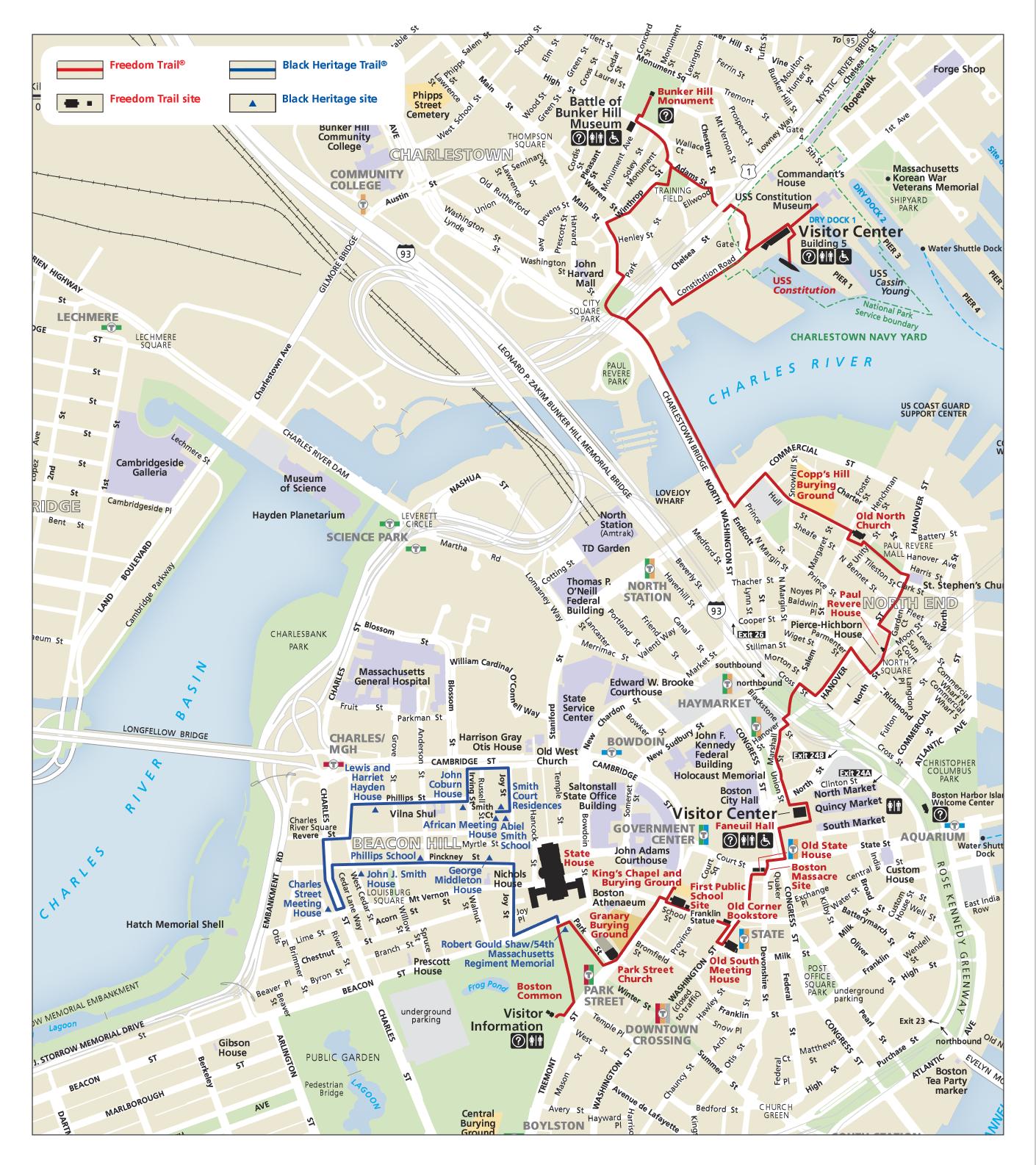Charlestown Naval Yard
Charlestown Naval Yard
Charlestown, Massachusetts 02129
Official WebsiteBoston National Historical Park webpage
Boston National Historical Park maps
Freedom Trail Official Website
Freedom Trail map
About this Location
The Charlestown Navy Yard built, repaired, modernized, and resupplied ships for 174 years. From here ships and the sailors serving aboard set off to places around the globe. The ships that left this yard represented the United States on every continent and defended the nation through both times of war and peace. The generations of workers at this yard took pride in the significance of what they contributed and the work that they completed. For many sailors, this was the last place they might touch American soil for months, years, or perhaps never again.
Operationally, the yard saw many periods of expansion and decline as the policies of the United States changed over two centuries. Technologically, the yard saw the constant transformation and acted as a hub of innovation. When the yard opened it serviced wooden sailing ships and employed tradesmen such as carpenters, ropemakers, and ship riggers. When the yard closed in 1974, the yard had welders, electricians, machinists, ironworkers, pipefitters, and engineers.
Today, explore the heart of the original Navy Yard. Visit the Charlestown Navy Yard Visitor Center where there are park staff available to answer questions, interactive exhibits, and public restrooms. Walk the decks of two historic warships that call the Navy Yard home: the undefeated sailing frigate USS Constitution and the 20th-century Fletcher-class destroyer USS Cassin Young. Further, engage with this naval history at the USS Constitution Museum.
About Freedom Trail
See all hotspots at Freedom Trail
The Freedom Trail is a 2.5-mile-long path through Boston that passes by 16 locations significant to the history of the United States. Marked largely with brick, it winds from Boston Common in downtown Boston through the North End to the Bunker Hill Monument in Charlestown. Stops along the trail include simple explanatory ground markers, graveyards, notable churches and buildings, and a historic naval frigate. While most of the sites are free or suggest donations, the Old South Meeting House, the Old State House, and the Paul Revere House charge admission. The Freedom Trail is overseen by the City of Boston’s Freedom Trail Commission and is supported in part by grants from various nonprofits and foundations, private philanthropy, and Boston National Historical Park.
Features
Wheelchair accessible trail
Restrooms on site
Entrance fee
Content from Official Website and Freedom Trail Official Website
Last updated January 14, 2024
